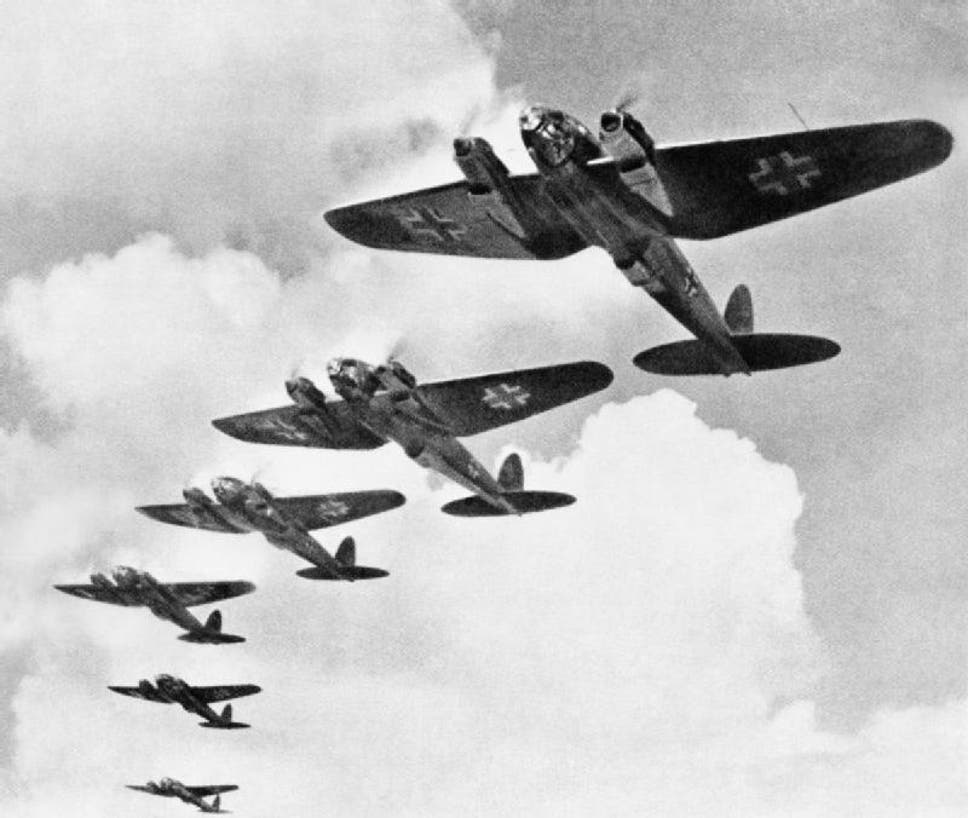10.7. 1940 Battle of Britain
Categories: Second World War , War in the air , Calendar

Hitler hoped that Great Britain would sue for peace. However, this did not happen, and so in July 1940 the battle began, lasting less than a year. The Germans caused considerable damage in London and other British cities.
Churchill's 1940 speeches, broadcast over the obligatory overgrown cigar, are among the most famous English speeches ever. They were old-world and fantastically sublime, literally Shakespearean. They would have sounded over the top in the First World War, even in their darkest moments, but they matched the gravity of the events of May to September 1940 perfectly. They touched the deepest chord of the entire English-speaking world.
For after the German occupation of Norway on 8 June 1940 and the French surrender on 22 June of that year, the strategic situation changed drastically to Britain's disadvantage.Hitler hoped they would sue for peace, but Britain took a defiant stance. Hitler therefore ordered preparations for a cross-Channel invasion and ordered the Luftwaffe to overwhelm the British air force by all available means.
British Fighter Command was well prepared for a German air invasion. There was a chain of radar stations to give warnings of approaching enemy aircraft to operations rooms where the progress of the air battle could be monitored. Pilots at the bases were always on alert and ready to take off.
After the initial clashes over the canal in July 1940, actual Luftwaffe operations began in mid-August. Whenever the weather permitted, squadrons of bombers were sent over the La Mance Canal with fighter escorts. In clashes over southern England, RAF Spitfires took aim at the German escorts, while Hurricane fighters attacked German bombers. Fighter Commander Hugh Dowding had a clear objective, and that was to keep the fighter force in action.
It was generally agreed that the Germans had the upper hand in air combat but lacked clear targets. In early September, following a decision from above, the main focus of the attack shifted from bombing airfields to mass raids on London. By the end of October all consideration of an invasion was abandoned. Air operations subsequently concentrated on night bombing raids.
The Germans inflicted considerable damage in London and other British cities but failed to develop usable bombers, limiting the effect of the attack. Bombing of Britain continued at a lesser intensity until the spring of 1941.
Sources: Wasson Ellis, History of Modern England, Robert Forczyk, Fw 200 Condor vs. Atlantic Convoys, R. G. Grant, Battles: 5000 Years of Warfare, www.independent.co.uk
The article is included in categories: